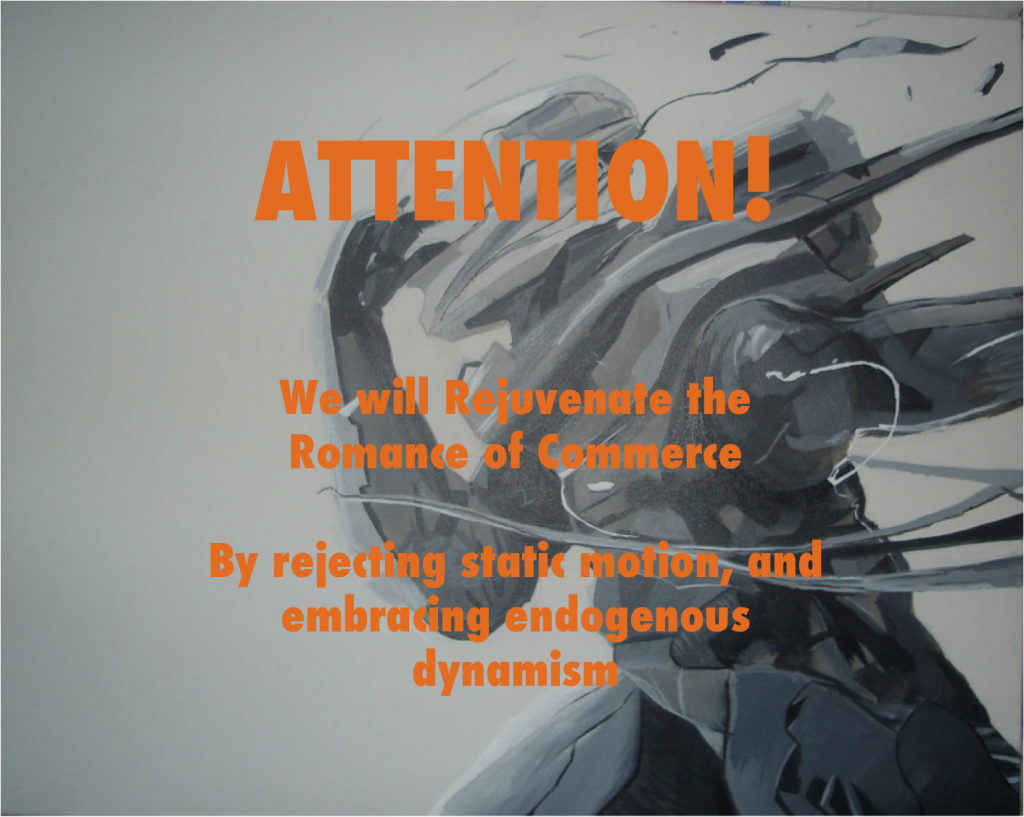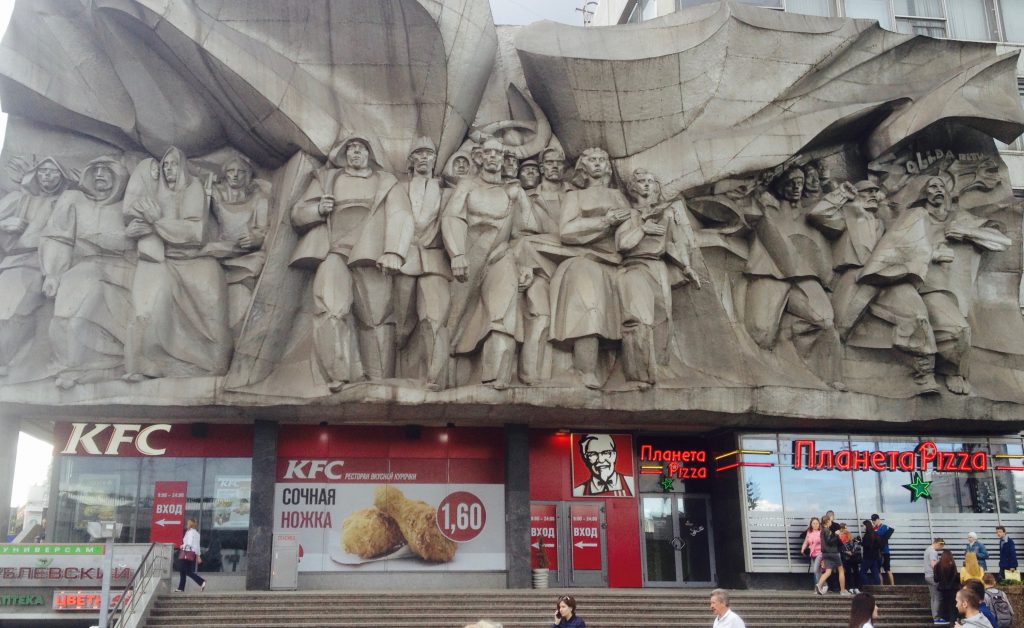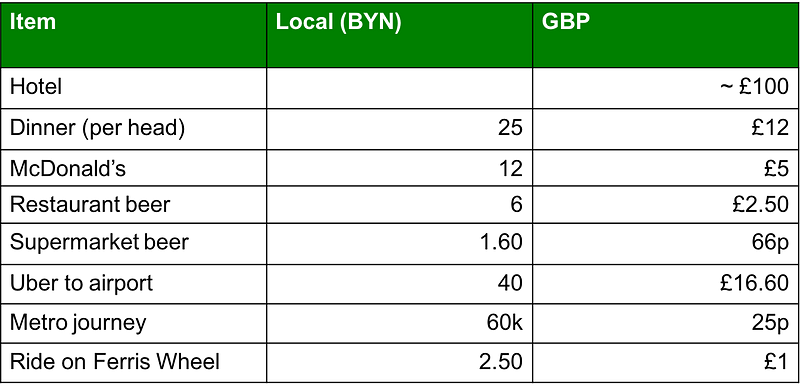New York is the classic metropolis and when you stand in Times Square you feel that you are in the centre of the world.
Most great cities have a similar aspect – the river upon which it originates provides a bearing and context. I love Liverpool in part because the two Mersey tunnels preserve the unique skyline (and provide a clear view of where I got married).

Liverpool – the city of my adoption and my affection
New York – and when I say New York I obviously mean Manhattan – is special because there is no dominant waterfront. The fact that it’s an island makes it inward looking, and instead of being in a city to judge by itself, you feel that you are at the centre of all cities, and therefore all modern civilization.
My first trip to New York was via bus from Washington DC. We were offloaded in Chinatown and it was freezing cold, so we went straight into the nearest diner for coffee and doughnuts. After dumping our bags in the hostel we raced to the Empire State Building and caught the last elevator ride up. What was damp rain at street level was snowfall at the top. Romantic, and majestic.
I call myself a citizen of the world and New York the capital of the world, Jack Reacher (in Gone Tomorrow, p. 16)
My last trip was to present a paper at the Eastern Economic Association annual conference. The keynote was delivered by Ed Glaeser, the world’s leading economist on cities. He is a sharp, dazzling speaker, and watching him perform with a New York City backdrop was a thrill. Satisfying, and triumphant.
The city as the engine for social change and increasing well-being is one of the truly great triumphs of our amazing ability to form social groups and collectively take advantage of economies of scale (West, 2017, p.186).
What I love most about cities is the juxtaposition of energy and possibility and the amount of personal space they provide. An atomised city provides a certain sanctity. Here’s how to spend time alone in NYC.
Cities are the crucible of civilization, the hubs of innovation, the engines of wealth creation and centres of power, the magnets that attract creative individuals, and the stimulant for ideas, growth, and innovation. (West 2017, p.215).
They incubate immense wealth creation by permitting specialisation and market exchange. Consider David Schmitdtz (2023, p. 101):
In a village, a poor man’s son might grow up to be a doctor, but no one will push the frontier of oral surgery. Why not? Because in villages there aren’t enough customers. Specialized trades emerge only where a customer base is large enough to sustain them. To find specialists, we go to a commercial hub such as London. In London, someone who might otherwise be the village carpenter can specialize in crafting violins. Economies of scale make possible fine-grained specialization, thereby fostering new heights of excellence.
I like cities for the same reason that Frank Renzo does, in Sebastian Faulks’ ‘On Green Dolphin Street’,
I like the fact that it’s impersonal. No one troubles you. That’s what cities are for.
The downside of this, of course, is the potential to slip out of life, unnoticed. Cities come with costs.
They are the prime loci of crime, pollution, poverty, disease, and the consumption of energy and resources. Rapid urbanization and accelerating economic development have generated multiple global challenges ranging from climate change and its environmental impacts to incipient crises in food, energy, and water availability, public health, financial markets, and the global economy (West 2017, p.215).
But surely we can agree that the solutions to these modern problems must include (i) energy efficiency; and (ii) wealth. Thus cities are crucial.
Of course most cities develop along trading routes, and the best cities are historic ports.
“In port cities, arts proliferate and people innovate because ports are hubs or commerce; they are where cultures meet” (David Schmidtz, 2023, p. 101)
Each trip to New York is a combination of revisiting favourite eateries and seeking new ones.
I recommend:
- Ivan Ramen – (New York Times, one of my favourite episodes of Chef’s Table). I’ve only been the spin off, Slurp Shop, but enjoyed it immensely.
- Sombrero – ok, this isn’t particularly impressive cuisine but when you come from the UK, and the alternative is a chain such as Tortilla or Chiquitos, it’s nice to sit in a Mexican restaurant, with a wide range of tequilas, and full plates of decent fare. My main motivation for my first visit was the proximity to my hotel, but I went back a second time for familiarity. Not a strong recommend, but a place close to my heart.
- Xi’an famous noodles – I vouch for the Spicy Cumin Lamb burger, but there’s a lovely depth of heat and lip tingling joy across the menu.
To try:
Recommended bars:
- The Turnmill – this is the official bar of the Everton FC NYC supporters club. What’s better than a packed pub in a foreign city, on a matchday, covered in TVs, full of fellow fans? Savour the crisp walk of anticipation from the subway ready to sink a cold pint at 10am. Bizarre, but worth doing.
- The Garret
- Employees Only
Things to do:
- Take a ferry from pier 11 to Dumbo, visit the Time Out Market (in particulate take the lift up to the bar for a view across the terrace) and then walk back across the Brooklyn Bridge
I’m not sure when I’ll next go back to NYC. But I miss it.


 Created in July 2004,
Created in July 2004, 




